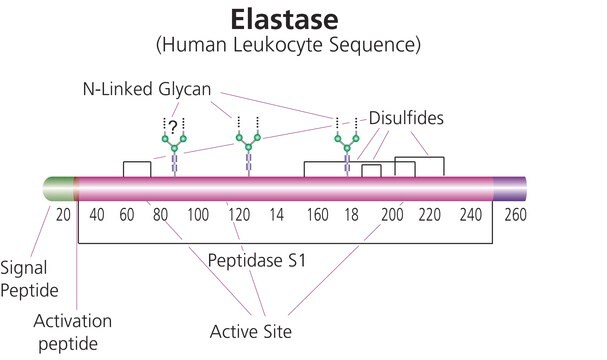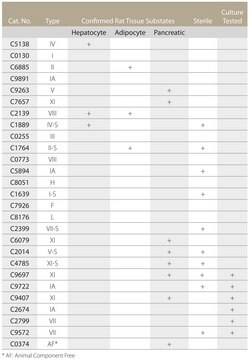E0258
Elastase from porcine pancreas
Type IV, Protein 50-90 %, lyophilized powder, ≥4.0 units/mg protein (biuret)
Sinónimos:
Elastase from hog pancreas, Pancreatopeptidase E
About This Item
Productos recomendados
biological source
Porcine pancreas
Quality Level
type
Type IV
form
lyophilized powder
specific activity
≥4.0 units/mg protein (biuret)
composition
Protein, 50-90%
foreign activity
trypsin ≤50 BAEE units/mg protein
storage temp.
−20°C
¿Está buscando productos similares? Visita Guía de comparación de productos
General description
Application
- to treat vero cells to study its effects on syncytium formation
- as a positive control in protease assays
- as a component in RPMI 1640 to isolate human aortic smooth muscle cells (HASMCs) from the aortic tissue
Biochem/physiol Actions
Packaging
Unit Definition
Physical form
Preparation Note
Application
Substrate
inhibitor
signalword
Danger
hcodes
Hazard Classifications
Eye Irrit. 2 - Resp. Sens. 1 - Skin Irrit. 2 - STOT SE 3
target_organs
Respiratory system
Storage Class
11 - Combustible Solids
wgk_germany
WGK 3
flash_point_f
Not applicable
flash_point_c
Not applicable
Elija entre una de las versiones más recientes:
¿Ya tiene este producto?
Encuentre la documentación para los productos que ha comprado recientemente en la Biblioteca de documentos.
Los clientes también vieron
Protocolos
Enzymatic Assay of Elastase (EC 3.4.21.36), a continuous spectrophotometric rate determination.
Chromatograms
application for HPLCNuestro equipo de científicos tiene experiencia en todas las áreas de investigación: Ciencias de la vida, Ciencia de los materiales, Síntesis química, Cromatografía, Analítica y muchas otras.
Póngase en contacto con el Servicio técnico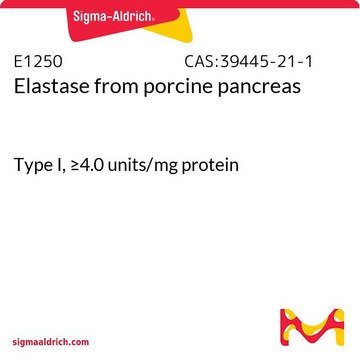
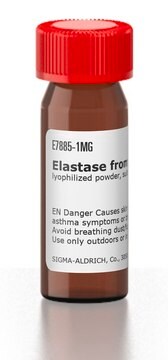

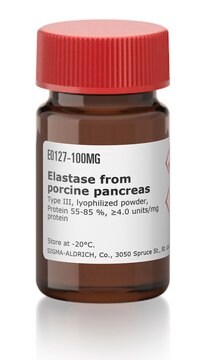

![N-[3-(2-Furyl)acryloyl]-Leu-Gly-Pro-Ala](/deepweb/assets/sigmaaldrich/product/structures/805/876/96b5fb57-71c8-4c6b-b5d2-fafe7374cd85/640/96b5fb57-71c8-4c6b-b5d2-fafe7374cd85.png)
